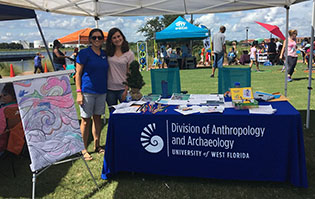Cultural Anthropology

Our Research
Dr. Marten is a cultural and medical anthropologist whose work on HIV prevention programs in East Africa led to her current research on reproductive health and maternal mortality. Her primary research interests include equity in access to HIV and maternal health services in Tanzania and northwest Florida, focusing on how volatility in donor aid and health policy affects the health and well-being of women living in poverty.
Medical anthropology incorporates both cultural and biological anthropology by examining the effects of social and cultural factors on health and health care. For her dissertation, she spent 20 months in rural and urban health-care settings in Tanzania to document the impact reduced funding can have on a health system’s ability to respond to health emergencies. She focused on US-funded programs designed to prevent mother-to-child transmission of HIV, and the coping strategies HIV-positive women use to manage their health in unpredictable donor aid and health care contexts. She is a recipient of a Fulbright-Hays dissertation fellowship, and has written peer-reviewed journal articles related to this work and to global health, including “From Emergency to Sustainability: Shifting Objectives in the US Government’s HIV Response in Tanzania,” published in Global Public Health, “Living with HIV as Donor Aid Declines,” published in Medical Anthropology, and “Hospital Side-Hustles: Funding Conundrums and Perverse Incentives in Tanzania’s Publicly-Funded Health Sector” in Social Science and Medicine.
Locally, Dr. Marten has been working within the community looking at maternal health and infant mortality. She has been part of a study "on everyday, chronic stress among Pensacola mothers to get a sense if pervasive stressors like sexism, racism, discrimination and poverty could be contributing to poor health outcomes among local moms and their babies". This work was featured in an article in the Pensacola News Journal.



